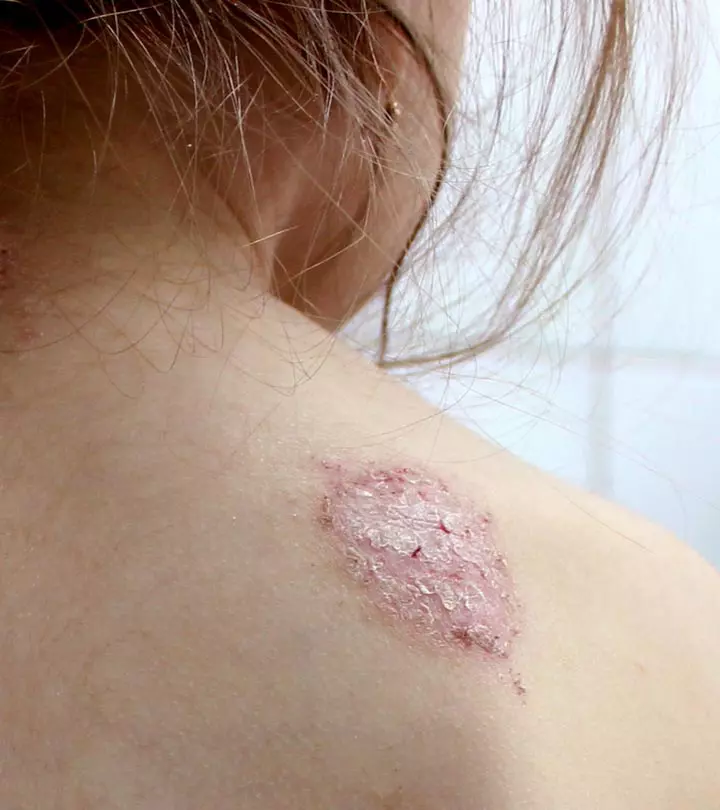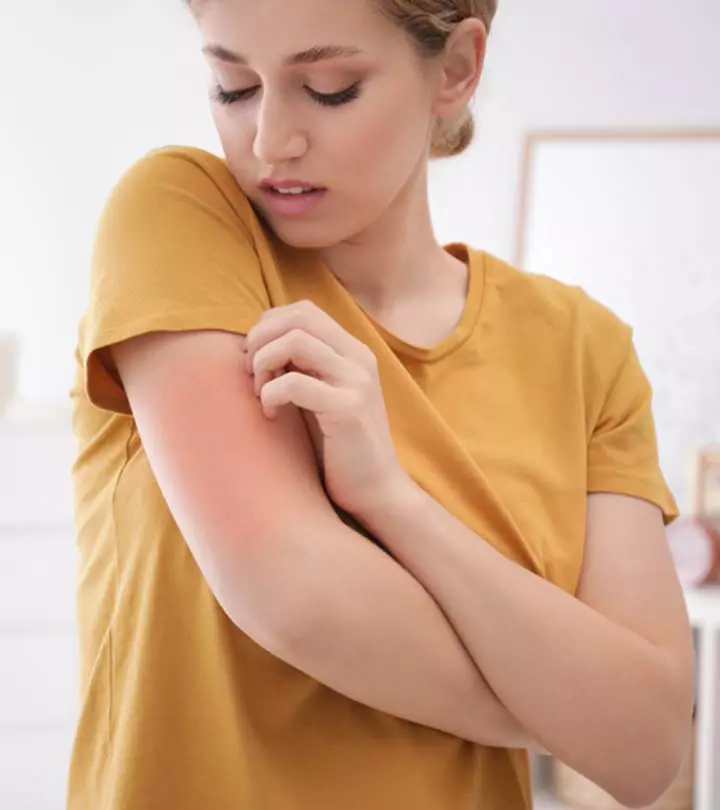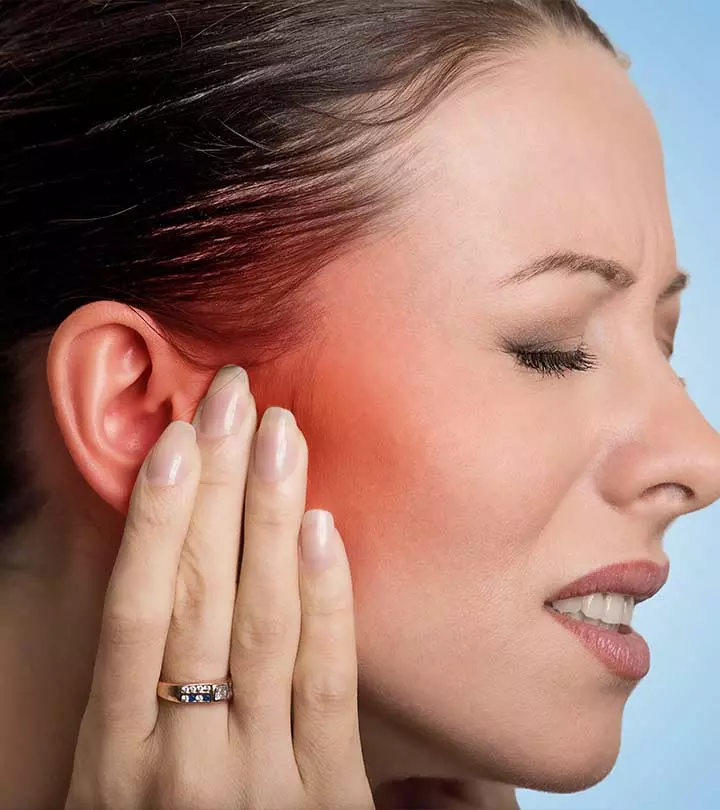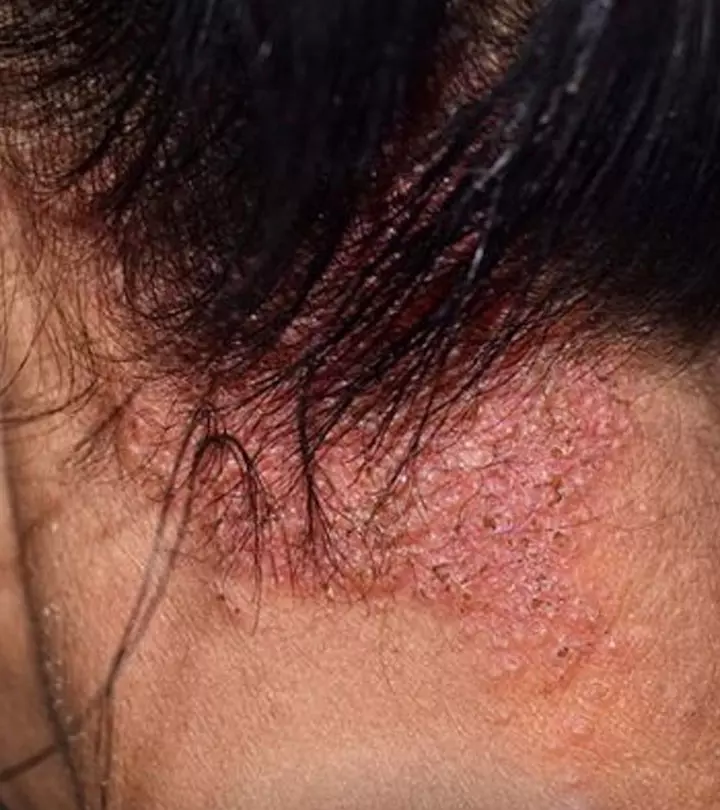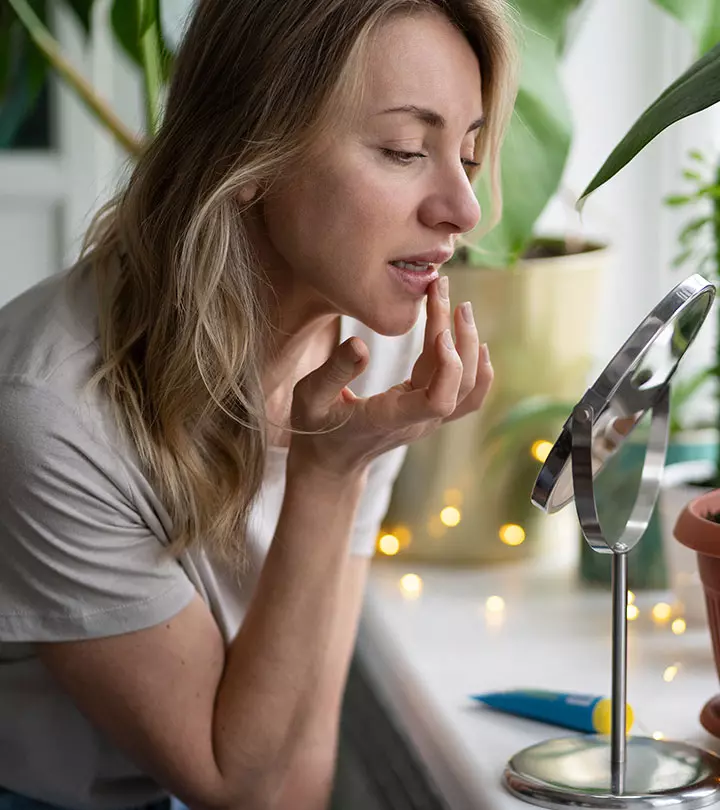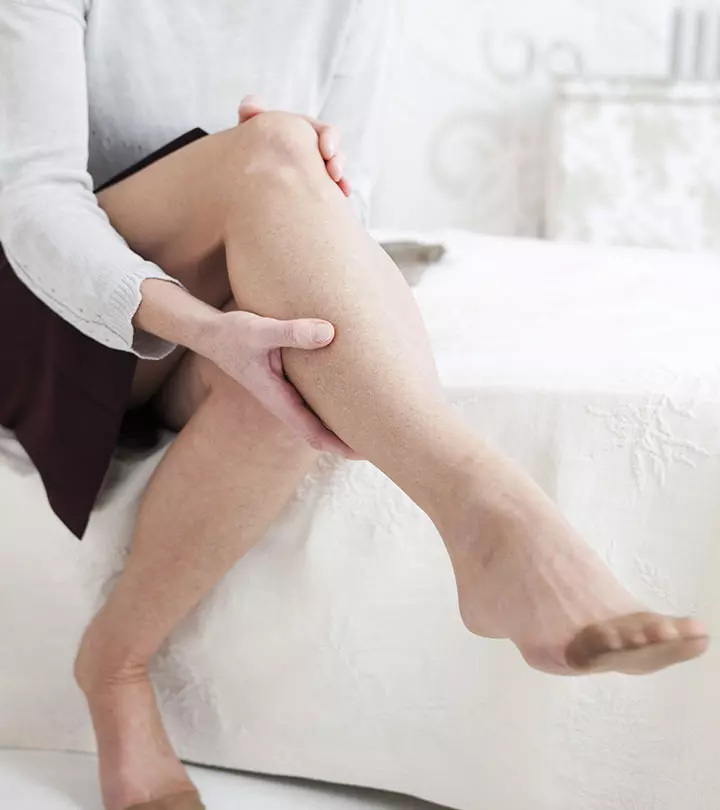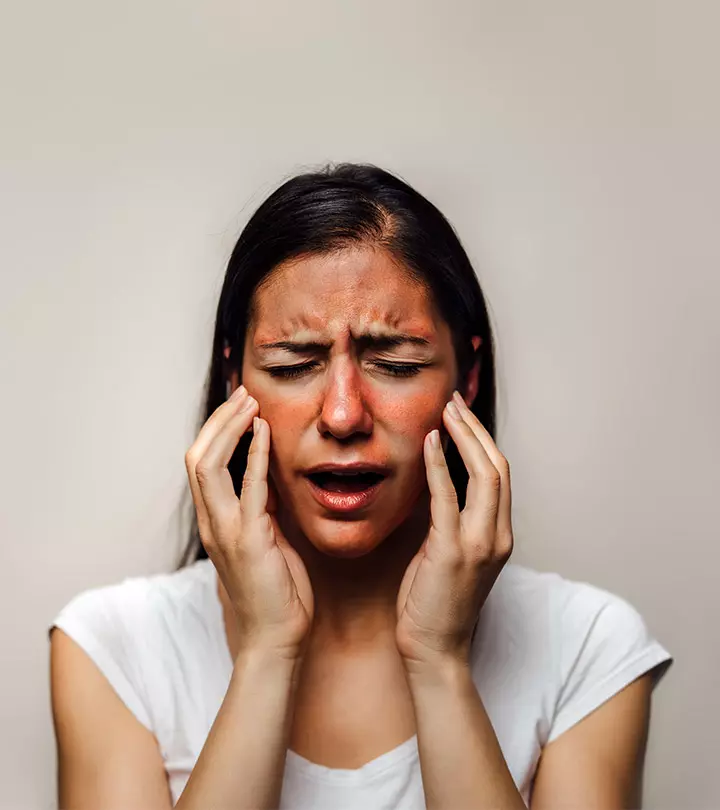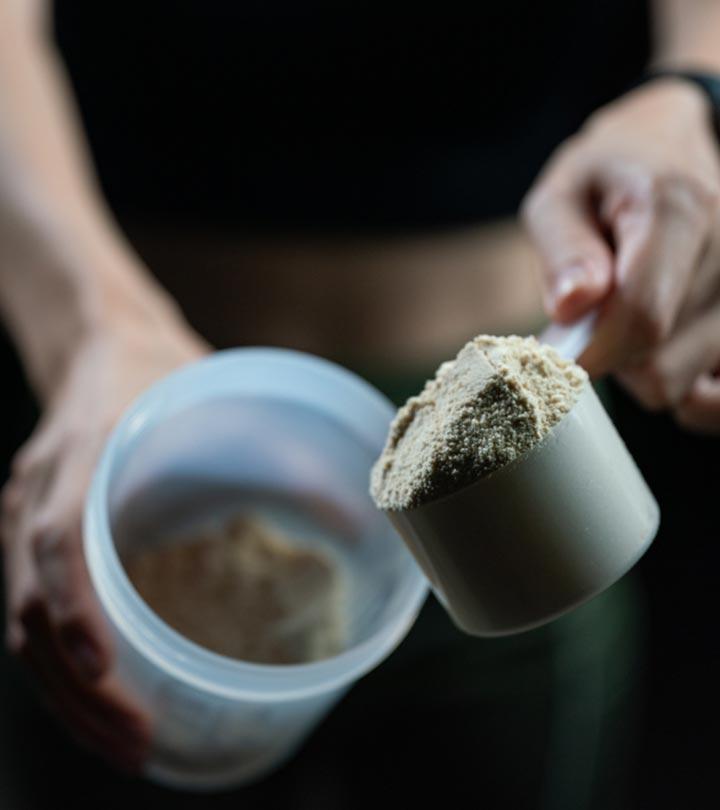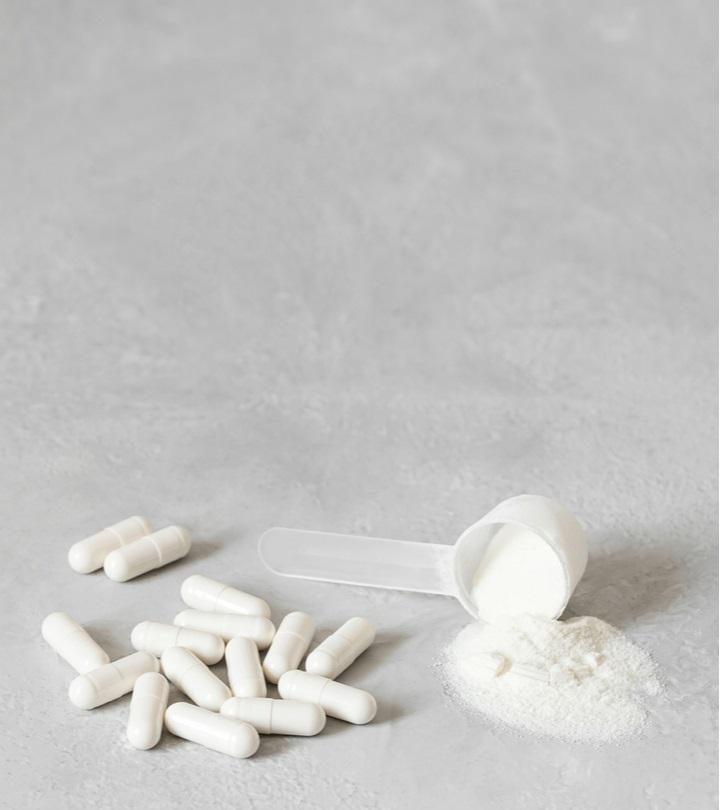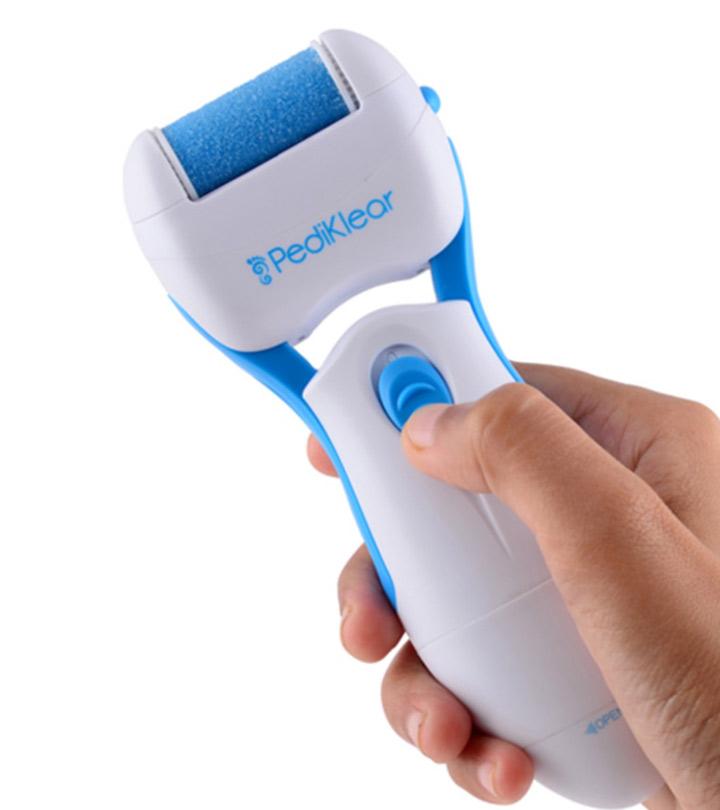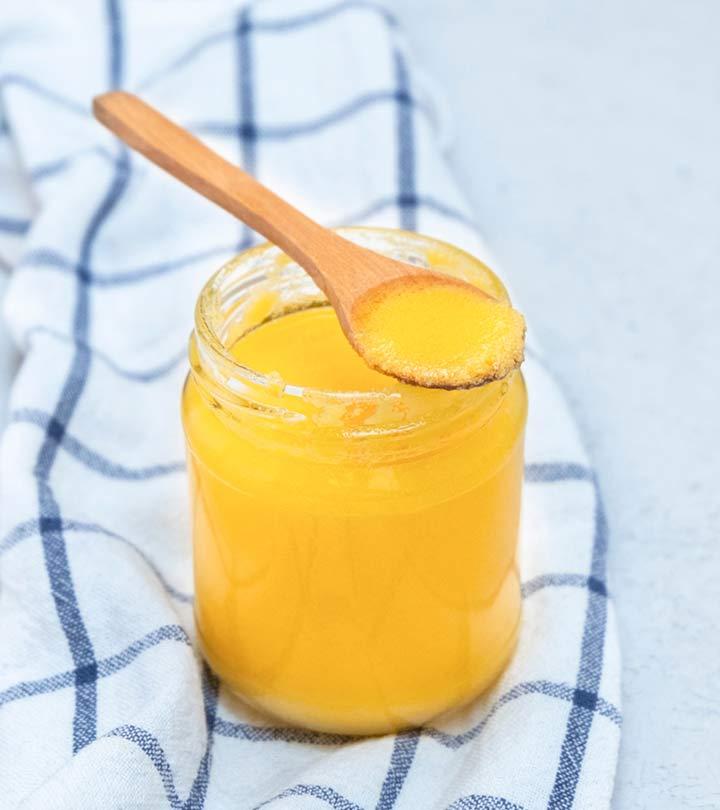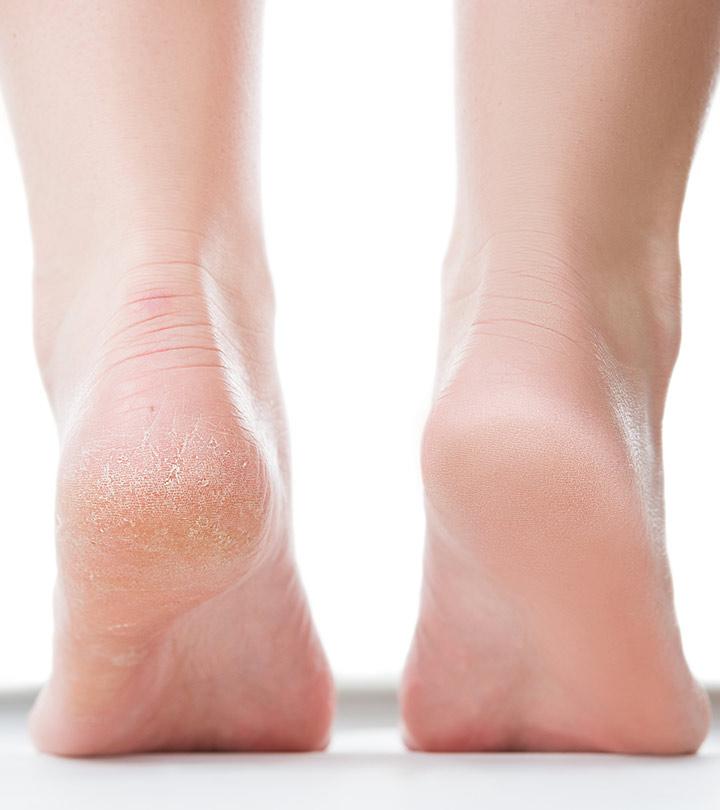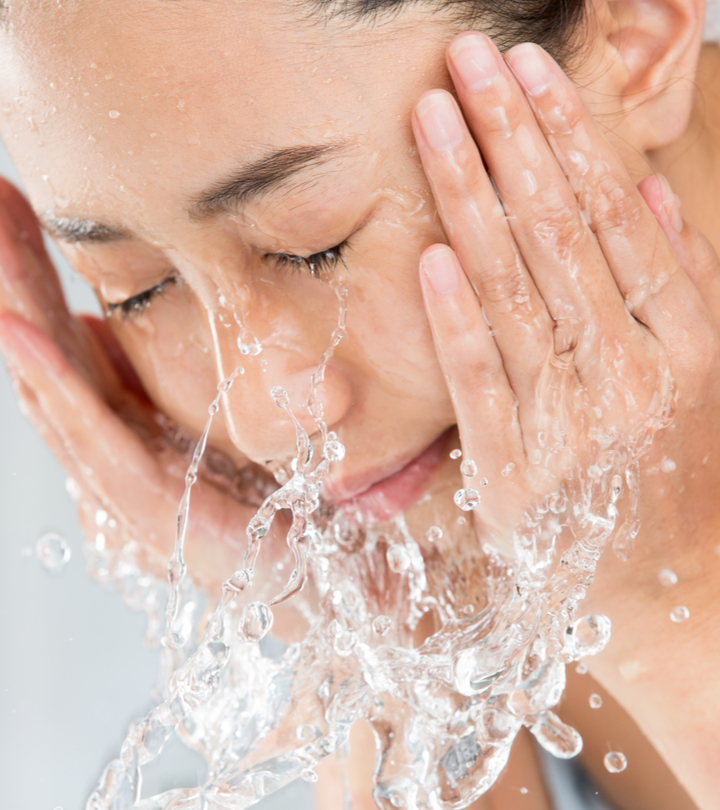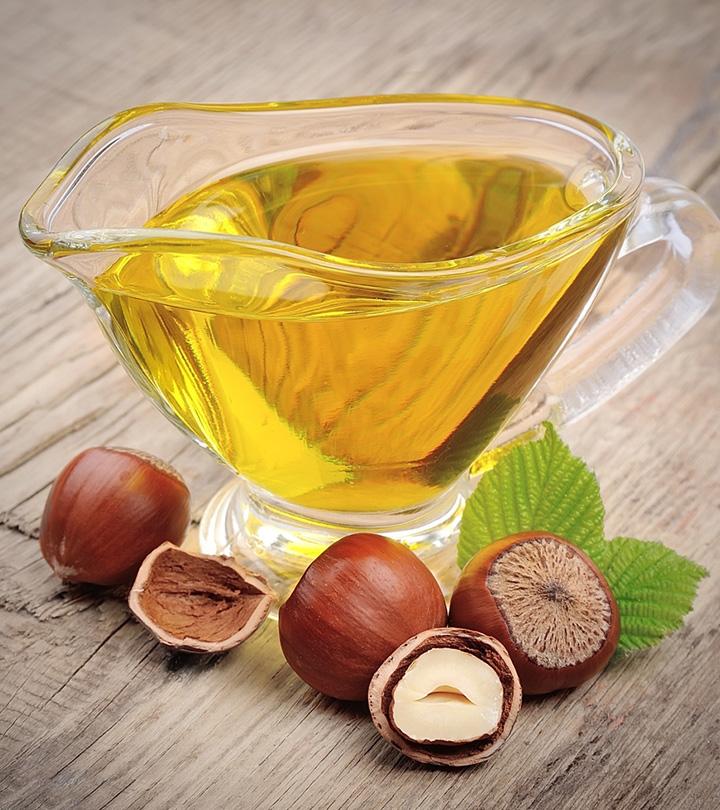Weeping Eczema: Types, Symptoms, Prevention, And Treatment
Identifying the signs of a possible complication can help prevent further damage.

Image: Shutterstock
Weeping eczema is not a specific type of eczema but a complication caused by this inflammatory skin condition. It is characterized by pud or fluid-filled blisters, which may ooze. Weeping eczema is a sign of a bacterial, viral, or fungal infection. It is caused when the infected eczema rashes become inflamed and develop blisters. Weeping eczema may cause pain, severe itching, and burning sensations, and it can be challenging to treat. This article discusses the causes of weeping eczema, symptoms, diagnosis, treatment options, and other ways to manage it. Keep reading to learn more.
In This Article
What Is Weeping Eczema?
As the name suggests, weeping eczema is when the skin rashes become filled with pus and start leaking or weeping yellow-colored liquid from it. This causes the skin to feel wet and sticky. When the liquid dries up, it forms dry and crusty flakes on your skin (1). Weeping eczema develops when you scratch the surface of your skin which allows pathogens such as bacteria, fungi, or viruses to enter the body.
In a cross-sectional study that included 2.1 million patients who attended 494 general practices in the MedicineInsight program between 2017 and 2018, atopic dermatitis (eczema) had a lifetime prevalence of 16.4%. The condition was found to be higher in females (17.3%) than males (15.3%).
Now that we know what weeping eczema is, let us look at the different symptoms of weeping eczema.
Symptoms Of Weeping Eczema
These are the following symptoms associated with weeping eczema:
- Open Blisters
- Soreness
- Intense itching
- High fever
- Pus on the skin
- Pain
- Fatigue
- Swollen lymph nodes
- Dry flakes on the skin
- Red sores around the body
- Yellow-colored liquid seeping from the skin.
With the symptoms mentioned in this section, you will know what to look out for when you develop this condition. Next, let us look at the different factors that cause weeping sores.
What Causes Weeping Eczema?
Weeping eczema can be a result of infections by different pathogens such as bacteria or viruses. Let us look at the different types of microbes that cause these weeping blisters.
- Bacterial Infection – Patients with weeping eczema are at a higher risk of developing bacterial infections like the one caused by Staphylococcus aureus. It is diagnosed by the appearance of weeping lesions, pus-filled blisters, and yellow-colored crusts (2).
- Viral Infection – Patients diagnosed with eczema have an increased risk of developing a viral infection caused by the Herpes simplex like eczema herpeticum. It is a skin condition characterized by pus-filled blisters and ulcers on your face, neck, and trunk (3).
As you can see, bacteria and viruses play a major role in causing weeping eczema. More research needs to be done to understand other factors that may lead to the development of weeping dermatitis. In the next section, you will read about the right time to visit a doctor.
When To Consult A Doctor
Seeing your doctor right away would be the best thing to do if you see that the symptoms of eczema are not going away and are getting severe. If you also see that the blisters are leaking pus, then it is a sign of infection and must be treated right away. Let’s check out the different ways in which your doctor might diagnose weeping rashes.
How To Diagnose Weeping Eczema
A dermatologist can diagnose weeping blisters by conducting a physical examination. During the physical examination, the doctor will check for symptoms associated with eczema such as skin rashes that leak pus. Your doctor will also rule out other skin conditions such as psoriasis before coming to a conclusion. Your doctor might ask you to do a skin-prick test to rule out allergic reactions that cause rashes to develop on the skin (1). Once the tests are done, your doctor will prescribe the best treatment for you. The different treatment options available for this condition are discussed in the next section.
Treatment Options For Weeping Eczema
The type of treatment your doctor prescribes will depend on what caused the condition. Based on that, your doctor might prescribe you the following treatment options.
- Antibiotics – If the cause behind your weeping eczema is bacteria, then your doctor will prescribe you antibiotics to help heal the sores. They may be in the form of tablets, syrup, or topical antibiotic cream to help reduce the scratching associated with eczema.
- Antiviral Tablets – If your eczema is a result of a viral infection, then your doctor will prescribe antiviral medications. Antiviral medication can be administered in the form of tablets or through an IV drip in the hospital if the condition is serious.
- Steroid Creams – These creams are prescribed along with moisturizing products to help relieve the itching and prevent the skin from drying out (1).
If you are looking for natural alternatives for treating weeping lesions, you can read about a few home remedies in the next section.
Best Potential Home Remedies For Weeping Eczema
You can find below a few home remedies that may help in keeping the symptoms of weeping sores under control.
- Aloe Vera Gel – Using aloe vera gel may help soothe the weeping sores on your skin and may provide relief from the rashes. Derived from the leaves of the aloe vera plant, aloe vera gel has been used for centuries for treating burns, wounds, and many medical conditions. A systematic review done in 2015 found that aloe vera demonstrated high antibacterial, antimicrobial, and anti-inflammatory proteins (4).
- Apple Cider Vinegar – Apple cider vinegar may have antimicrobial properties that may help fight bacteria such as Staphylococcus aureus (5). Keep in mind that apple cider vinegar must be diluted with water before applying it to your skin.
- Coconut Oil – Applying coconut oil to your skin may help in the reduction of dryness by keeping your skin moisturized. According to research, virgin coconut oil helps keep the symptoms of eczema in check in comparison to mineral-based oil (6).
Lilly, a YouTuber and vlogger, shared her experience of trying to heal her eczema naturally. She says, “I’m on a journey to heal naturally…. I don’t wanna go back to steroid creams, I’m trying to implement a better diet. Eczema is more of an internal issue and it has something to do with your gut having a lot of toxins, it needs to be detoxed. (i).” She goes on to add, “This is just my body telling me that I need to eat right because I don’t know when I had a full meal last.”
 Quick Tip
Quick TipPrevention is better than cure. Hence, let’s look at a few tips to help prevent weeping blisters.
Tips To Prevent Weeping Eczema
You can follow these simple hacks to decrease the risk of developing an infection due to eczema:
- Avoid Scratching The Blisters – You should not scratch the rashes as they can lead to infections. If it itches very badly, visit your doctor.
- Moisturize Your Skin – If you have dry and flaky skin, then the best thing to do would be to moisturize your skin with lotion. Scratching your dry skin leads to skin breaking which allows pathogens to enter and cause an infection.
- Take Baths Regularly – Washing yourself every day can get rid of dead skin and pathogens, decreasing the chances of developing eczema. Wash yourself with lukewarm water and pat dry with a clean towel.
- Avoid Using Harsh Soaps– Use soaps that are gentle on your skin and do not rip off the natural moisture balance.
While understanding preventive tips is extremely important for the management of eczema, it is also important to understand whether the condition is contagious. Check out the section below to know more.
Is Weeping Eczema Contagious?
Weeping eczema itself is not contagious. However, there is a potential risk of secondary infections if the oozing sores are scratched or if the affected area comes into contact with harmful bacteria. To minimize this risk, maintaining good hygiene practices, avoiding scratching, and keeping the affected areas clean may help prevent potential complications. Also try avoiding any known potential allergens like harsh chemicals, synthetic fabrics, and molds which can aggravate weeping eczema. In addition, try managing stress for effective management of this condition.
 Pro Tip
Pro TipThese simple tips can go a long way in reducing the risk of infections and preventing weeping skin rashes in the first place.
Weeping eczema is caused by a bacterial, viral, or fungal infection. It occurs when infected eczema rashes become irritated, and blisters form. More research is needed to identify the various elements that may contribute to the development of weeping dermatitis. It is difficult to treat since it causes discomfort, extreme itching, and skin irritations. If you seek natural ways to treat weeping lesions, a few home remedies listed above can help you manage the symptoms of weeping sores. If your eczema symptoms persist and home remedies are ineffective, seeing a doctor is your best option.
Frequently Asked Questions
Is Vaseline good for weeping eczema?
Yes. Petroleum jelly (Vaseline) moisturizes and soothes skin irritation, redness, and discomfort.
Should you cover eczema or let it breathe?
Anecdotal evidence suggests that applying soothing topical creams and then wrapping a wet gauze or bandage around eczema helps boost the potency of the cream.
Does sugar make eczema worse?
Possibly. While a scientific study concludes that sugar is not an aggravating factor in eczema, anecdotal evidence suggests that consumption of sugar-rich foods may result in eczema flare-ups (8).
Is tea tree oil good for eczema?
Yes. The properties of tea tree oil may be able to relieve dry skin, soothe irritation, and deal with skin infections.
Key Takeaways
- Different viral, bacterial, and fungal infections can cause weeping eczema.
- A dermatologist can diagnose weeping eczema by doing a physical examination, and he may prescribe some antibiotics to treat it.
- You can also try home remedies like aloe vera gel, apple cider vinegar, and coconut oil to treat weeping eczema naturally.
- Moisturize your skin, avoid scratching the blisters, and take baths regularly to prevent a flare-up.
Are you looking for some natural solutions for weeping eczema? The video below contains holistic tips and the secrets to treating eczema and finding relief for irritated skin. Check it out now!
Personal Experience: Source
(i) Weeping Eczema, & Is This Contact Dermatitis ? Cleared in 8 days|Journey to Healing Eczema Naturally
https://www.youtube.com/watch?v=_TuR_g2rhfE
References
Articles on StyleCraze are backed by verified information from peer-reviewed and academic research papers, reputed organizations, research institutions, and medical associations to ensure accuracy and relevance. Read our editorial policy to learn more.
- Eczema: Overview
https://www.ncbi.nlm.nih.gov/books/NBK279399/ - The role of bacterial skin infections in atopic dermatitis: expert statement and review from the International Eczema Council Skin Infection Group
https://www.ncbi.nlm.nih.gov/labs/pmc/articles/PMC7317931/ - Eczema herpeticum
https://www.ncbi.nlm.nih.gov/labs/pmc/articles/PMC3520662/ - Evaluation of biological properties and clinical effectiveness of Aloe vera: A systematic review
https://www.sciencedirect.com/science/article/pii/S2225411014000078 - Antimicrobial activity of apple cider vinegar against Escherichia coli Staphylococcus aureus. and Candida albicans; downregulating cytokine and microbial protein expression
https://pubmed.ncbi.nlm.nih.gov/29379012/ - The effect of topical virgin coconut oil on SCORAD index transepidermal water loss and skin capacitance in mild to moderate pediatric atopic dermatitis: a randomized double-blind clinical trial
https://onlinelibrary.wiley.com/doi/full/10.1111/ijd.12339 - Drinking deep-sea water restores mineral imbalance in atopic eczema/dermatitis syndrome
https://www.researchgate.net/publication/7729954_Drinking_deep-sea_water_restores_mineral_imbalance_in_atopic_eczemadermatitis_syndrome - Sugar is Not an Aggravating Factor in Atopic Dermatitis
https://www.medicaljournals.se/acta/content/abstract/10.1080/00015550152572930
Read full bio of Dr. Sravya Tipirneni
Read full bio of Ramona Sinha
Read full bio of Swathi E





